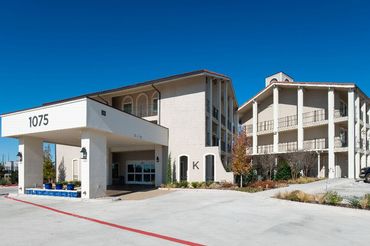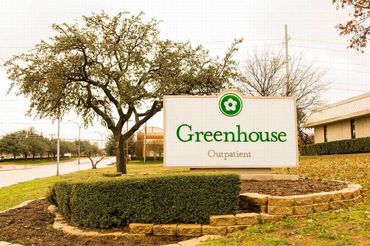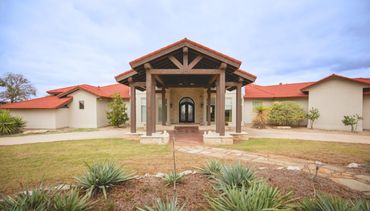
Drug & Alcohol Rehab Centers near Hurst, TX
Finding treatment for substance use disorder in Hurst, Texas is a pivotal step toward recovery, and it is important to understand all treatment and payment options before beginning this journey.
Treatment Centers near Hurst, TX



Open to Travel? Check out Top-Rated Options
All Treatment Centers near Hurst, TX
Are You Covered For Treatment?
- Houston Rehabs
- Dallas Rehabs
- Austin Rehabs
- San Antonio Rehabs
- Fort Worth Rehabs
- El Paso Rehabs
- Lubbock Rehabs
- Amarillo Rehabs
- Corpus Christi Rehabs
- Laredo Rehabs
Information About Rehab in Hurst
Latest Reviews
Latest Reviews of Rehabs in Texas
Symetria — Hurst Outpatient Rehab
Most rewarding accomplishment - overall physical and mental health and better relationships.
Area Information
Hurst, Texas, nestled in Tarrant County, resides within the bustling Dallas-Fort Worth metroplex. Boasting a population of just under 40,0001 that thrives in its close-knit community, Hurst offers a balance of urban amenities and a suburban feel. Its strategic location provides easy access to major highways, promoting connectivity within the region.
Substance Misuse and Addiction in Hurst, Texas
Situated within Tarrant County, Hurst grapples with similar drug misuse and addiction challenges prevalent across the county. In 2023, the area has witnessed nearly 2,500 overdoses, with a significant portion attributed to fentanyl, as reported by the Fort Worth police2. Alarming statistics from the Texas Department of State Health Services reveal a substantial surge in fentanyl-related overdose deaths statewide, escalating from 891 in 2020 to 2,189 in 2022.2 The Tarrant County medical examiner’s office further reports that over 300 individuals have succumbed to overdoses this year alone.2
Drug and Alcohol Rehab
Rehabilitation facilities offer diverse programs and approaches tailored to treat addiction and support the path to recovery. Their multidimensional programs cater to individuals at various stages of their recovery journey, acknowledging the uniqueness of each person’s needs.
What Happens in Drug and Alcohol Rehab?
Treatment for substance use disorder spans various stages, encompassing detoxification, inpatient care, outpatient programs, and aftercare. Each stage addresses specific needs, providing varying levels of support and intensity, ensuring a personalized approach to recovery.
Detox Programs
Detox programs within rehabilitation settings are crucial initial steps for individuals seeking recovery from substance use disorder. These programs offer medically supervised environments where individuals undergo the process of eliminating substances from their bodies. They often involve a combination of medical supervision, support, and, in certain cases, medications to alleviate withdrawal symptoms and ensure safety throughout the detoxification process. The primary goal of detox is to stabilize individuals physically and emotionally as they transition into further stages of treatment.
How Long Is Detox in Rehab?
The duration of detox varies depending on multiple factors, including the substance abused, the individual’s overall health, and the severity of their addiction. Typically, detox programs last between 3 to 7 days, although some may extend for a more extended period to ensure a safe and comfortable withdrawal process.
Inpatient Drug and Alcohol Rehab
Inpatient treatment programs form an intensive phase of rehabilitation designed to immerse individuals in a supportive environment conducive to recovery. These programs involve residing within a facility for the duration of treatment, often ranging from 30, 60, or 90 days, although the duration can be flexible based on the individual’s progress and needs.
Inpatient programs offer a structured schedule of therapies and activities aimed at addressing not only the addiction but also any co-occurring mental health disorders. Therapy, including individual and group sessions, is a fundamental component used to guide patients in understanding the root causes of their addiction, learning coping mechanisms, and establishing a strong foundation for sustainable recovery.
Outpatient Drug and Alcohol Rehab
Outpatient treatment programs provide a flexible approach to recovery, allowing individuals to receive treatment while residing at home or in a supportive environment outside the facility. These programs are suitable for those who have completed inpatient treatment or for individuals whose addiction might not require the intensity of residential care. Outpatient programs often involve various therapy sessions, educational programs, and support group meetings.
They equip individuals with tools for relapse prevention, coping strategies, and life skills necessary to maintain sobriety in their daily lives. Moreover, these programs emphasize the importance of aftercare and provide ongoing support to aid individuals in transitioning back into their communities while maintaining their recovery journey.
How Much Does Rehab Cost?
Paying for rehab might seem daunting, but numerous options exist to ease the financial burden, ensuring that cost doesn’t hinder someone from seeking treatment. These options include:
- Payment Plans
- Government Grants and Scholarships
- Free Rehab
- State-Funded Rehab
Does Insurance Cover Drug and Alcohol Rehab?
Insurance coverage often includes partial costs for drug rehab, helping individuals access necessary treatment without overwhelming expenses. Widely accepted drug rehab insurances include:
Finding The Best Rehab Center
Hurst, Texas Drug and Alcohol Rehab Facilities
You can utilize our rehabilitation locator tool to discover nearby addiction treatment facilities. It’s crucial to bear in mind that exploring out-of-state treatment is frequently reccommended to reduce distractions and potential triggers. Regardless of where you choose to go, our locator tool assists in pinpointing the most fitting treatment center, whether in Texas or beyond, ensuring personalized care that aligns best with your needs.
Sources
- United States Census Bureau. Hurst, Texas. July 1. 2022.
- CBS News. Tarrant County district attorney creates new unit, focusing on narcotics cases, targeting drug dealers. November 20, 2023.
















